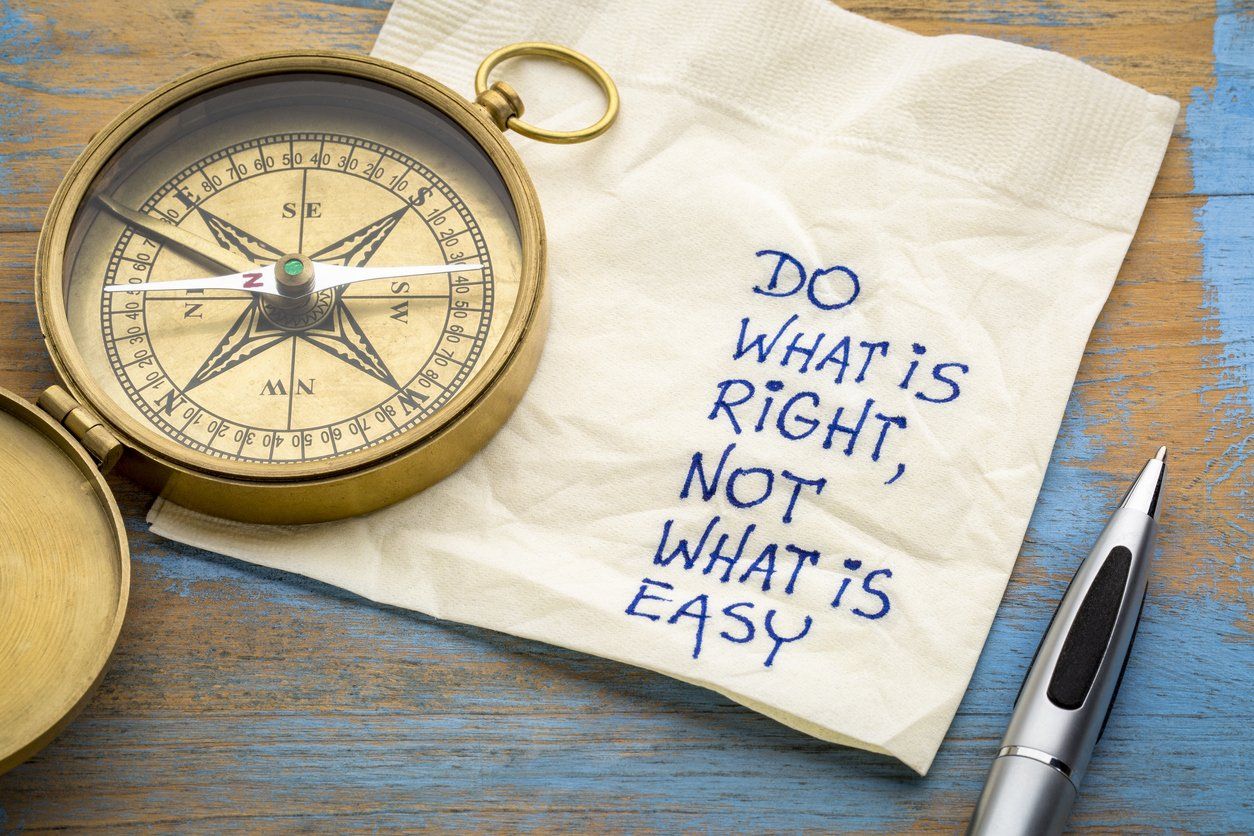ACADEMIC INTEGRITY IN HIGHER ED: DON’T BUILD YOUR FUTURE ON FALSE FOUNDATIONS
WHY IT'S IN YOUR OWN BEST INTEREST

Academic dishonesty in higher education is not a new phenomenon. The reasons why students are not academically honest are varied – some students have weaker language skills and the language at university is difficult, and for some their work ethic led them to search for non-legitimate solutions to submitting assignments, for instance. However, since the pandemic, which brought with it an increase in the need to submit tests and assignments online, additional loopholes have acted as an incentive for some students to submit work not wholly their own, an academic expert says.
Dr Gillian Mooney, Dean: Academic Support and Development at The Independent Institute of Education, SA’s largest and most accredited private higher education provider, says there are three types of academic dishonesty - or not doing the right thing - at university.
“These include cheating, plagiarism, and referencing issues,” she says.
CHEATING: Collaborating on assignments with others when you were tasked to do the work on your own, copying work or ideas from other students, helping someone cheat by sharing your work with them, downloading questions or assignments from the internet, and paying someone to complete your coursework, are examples of cheating, says Dr Mooney.
“The increase in online assessments certainly brought this to the fore during the 2020 pandemic. However, cheating websites have been around for years. The reality is that people try to make money off doing work for students, but students should not be tempted to use these sites,” she says.
PLAGIARISM: Paraphrasing, i.e. using key points from different sources and rewriting them as if they are your own, copying and pasting pieces of different text to create a new text, rewording or changing some words in sourced material, obscure sourcing to hide the actual source material, and weak citation, and therefore not properly acknowledging that this work was sourced from elsewhere, are examples of plagiarism, Dr Mooney explains.
REFERENCING: Proper referencing is very important and requires of students to consistently use the same referencing format, adhere to technical correctness and follow academic conventions, and ensure references in the text match up with the bibliography/reference list. “Proper referencing is very important because students join an academic community and they need to learn the rules of that community. It is therefore worth the effort to focus on getting your referencing on point right from the start,” says Dr Mooney.
“Students should ensure they have a good understanding of what constitutes academic integrity so that they don’t inadvertently submit questionable work,” she explains.
“Additionally, it must be understood that plagiarism is not a victimless crime and that the most likely victims will be the plagiarising students themselves – whether the impact is immediate in terms of sanction by their institution, or delayed as they enter the workplace unprepared. However, the most important consequence is for the person who engages in academic dishonesty. It really means engaging in unethical behaviour. The question is would you steal a cellphone? Would you cheat on your partner? The point is that academic honesty needs to be part of your everyday engagement with the world. Furthermore, the credibility of their qualification could be jeopardised if their institution gains a reputation for being lax in enforcing academic integrity policies.”
Any institution, whether public university or private higher education institution, has a duty towards their students to protect the credibility of their qualifications and the reputation of the institution, which is why it is of the utmost importance that institutions serious about this duty have clear policies and consequences – vigilantly enforced – regarding academic integrity.
“Intellectual integrity requires of students to at all times appropriately acknowledge the ideas and creations that influenced their work. It’s not only about integrity, but also about demonstrating that you are able to critically consider and engage with the thoughts, ideas, and creations of other people while developing your own.
“It’s about learning new skills and showing that you are ethical. Students may feel reluctant to steal a cellphone, and this reluctance should equally manifest in an unwillingness to steal the work of others. It really is a question of ethics – and being known to be ethical.”
All students want future employers to consider their qualification in a serious light, which means they will be acting in their own self-interest by protecting the credibility of their qualification and their institution by not resorting to plagiarism.
“If employers know that a qualification was gained through hard work only, from an institution that demands the highest degree of intellectual integrity from their students, these graduates will already have an advantage in the jobs marketplace.”
Students who are struggling should rather approach their institution’s support offices timeously, and get the assistance and support they need.
“And if you did make a wrong move, and would rather get back on an honest study track, you can work with your institution to resolve the matter. If you’ve made a mistake, taking responsibility for your actions is an act of empowerment, and will ensure you can continue on your academic journey with a clean slate and your head held high.”
The Independent Institute of Education (The IIE) is a division of the JSE-listed ADvTECH Group, Africa’s largest private education provider. The IIE is the largest, most accredited registered private higher education institute in South Africa, and the only one accredited by The British Accreditation Council (BAC), the independent quality assurance authority that accredits private institutions in the UK. By law, private higher education institutions in South Africa may not call themselves Private Universities, although registered private institutions are subject to the same regulations, accreditation requirements and oversight as Public Universities.










